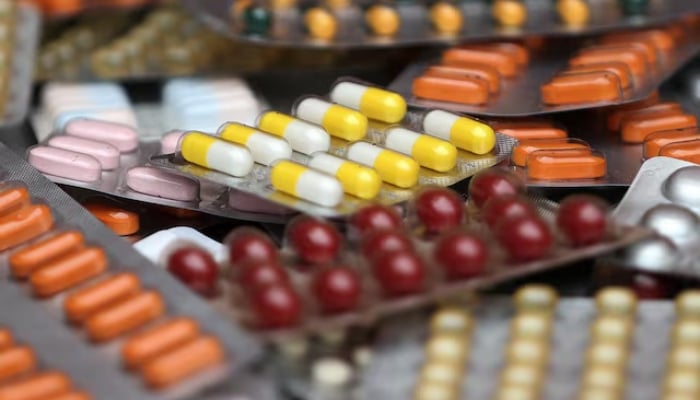ISLAMABAD: Pakistani health authorities have initiated "emergency preparedness" measures to secure pharmaceutical supplies in response to the suspension of trade ties with India. This move comes after tensions escalated following an attack in Pahalgam in the Indian Illegally Occupied Jammu and Kashmir (IIOJK). The Drug Regulatory Authority of Pakistan (DRAP) has confirmed that while there has been no formal notification regarding the ban's impact on the pharmaceutical sector, contingency plans are already in place.
"Following the 2019 crisis, we had started preparing for such contingencies. We are now actively looking at alternative avenues to meet our pharmaceutical needs," a senior DRAP official said. Currently, Pakistan relies on India for 30% to 40% of its pharmaceutical raw materials, including Active Pharmaceutical Ingredients (API) and various advanced therapeutic products.

With this supply chain distributed, DRAP is seeking alternative sources from China, Russia, and several European countries. The agency aims to ensure the continuous availability of essential medical supplies, including anti-rabies vaccines, anti-snake venom, cancer therapies, monoclonal antibodies, and other critical biological products. While DRAP's preparedness offers some reassurance, industry insiders and health experts have warned of a looming challenge if immediate action is not taken to manage the fallout of the trade suspension.
"Pakistan imports some 30%–40% of its pharmaceutical raw material from India. We also import finished products, most importantly, anti-cancer therapies, biological products, vaccines, and sera, especially anti-rabies vaccine and anti-snake venom from India," a senior official from the Ministry of National Health Services, Regulations and Coordination said, requesting anonymity. The Ministry of Health has yet to receive an official directive clarifying the status of pharmaceutical imports, despite the government's blanket announcement suspending all trade with India.
The pharmaceutical sector fears that disruption in the supply chain could lead to critical shortages. The situation is further complicated by the existence of a robust black market, where unregistered and unapproved medicines — many of Indian origin — are smuggled into Pakistan through Afghanistan, Iran, Dubai, and even across the eastern border. While these channels fill gaps left by legal imports, they offer no guarantee of quality or consistent supply.
A delegation of pharmaceutical industry leaders travelled to Islamabad on Thursday to appeal for an exemption from the trade ban. "We had meetings with DRAP and Ministry of Commerce officials to discuss the suspension of trade ties. We urged them to exempt the pharmaceutical sector from the ban, as there are many life-saving products whose raw materials come exclusively from India," said Tauqeer-ul-Haq, Chairman of the Pakistan Pharmaceutical Manufacturers Association (PPMA).
The PPMA delegation also approached the Special Investment Facilitation Council (SIFC), arguing that pharmaceutical and health-related trade must be excluded from the ban to protect patients' lives. However, some experts see the current crisis as a wake-up call for long-term investment in local production of APIs, vaccines, and biologicals. "This crisis could be a turning point for Pakistan," said Dr Zafar Iqbal, a senior public health expert.
"The Dow University of Health Sciences (DUHS) Karachi has already started manufacturing anti-rabies vaccines using Chinese raw materials and is working on anti-snake venom. NIH Islamabad should also be upgraded and given the resources and mandate to meet the country’s vaccine and biological product needs.".
Technology

India trade halt triggers urgent measures to secure pharma needs

This representational image shows various medicine pills in their original packaging in Brussels, Belgium. — Reuters/File ISLAMABAD: Pakistani health authorities have initiated "emergency preparedness" measures to secure pharmaceutical supplies in response to the...















